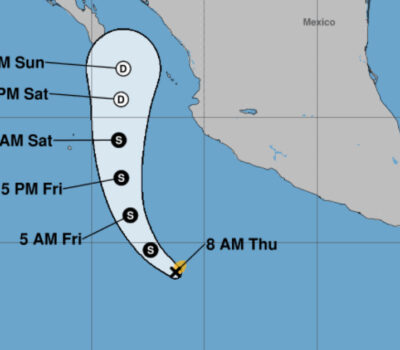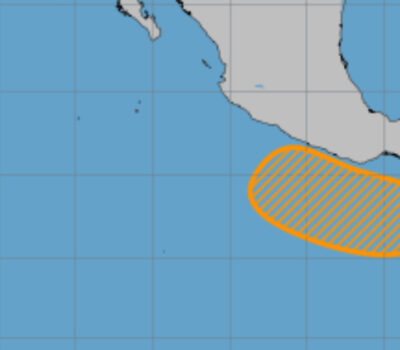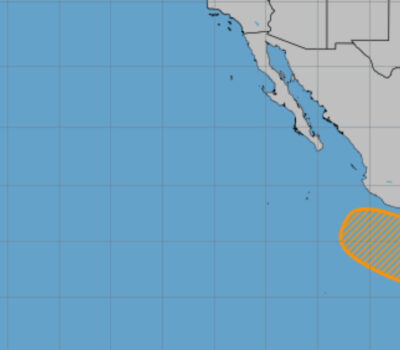Over the years, migration and drug trafficking have been two of the main problems shared by both the Government of Mexico and the United States. Although different administrations of both countries have deployed multiple policies to mitigate these phenomena, the efforts have turned out to be insufficient.
With the recent hacking that the group of activists called “Guacamaya” carried out on the servers of the Secretariat of National Defense in Mexico (Sedena), some of the measures that the Government of Mexico has resorted to in monitoring and strengthening surveillance on its northern border have been revealed.
According to documents obtained by the civil organization Mexicans Against Corruption and Impunity (MCCI), the Government of Mexico hired a company linked to the Chinese government, for which the United States warned about the risk to national security.
According to what was exposed by the civil organization, the Government of Mexico installed scanning and surveillance equipment at border points from a company linked to the Chinese Government despite warnings from US authorities of a threat to national security and a history of corruption by the company.
This information was verified in an intelligence report sent on April 22 by the State Department to the Secretary of National Defense (Sedena), which warned that the Nuctech company had links with the Chinese government.
Likewise, in the report consulted and disseminated by Mexicans Against Corruption and Impunity (MCCI) it is realized that the Chinese company has participated and will probably continue to incur illegal practices that include corruption, bribery, and dumping to obtain an unfair advantage in the market.
This report supports some of the bad practices that the company linked to the Chinese Government has had in countries in Europe, Asia, and Africa. An example of this was what happened in 2009 when the Namibian Anti-Corruption Commission charged a Nuctech executive and a public official from the Ministry of Finance with fraud, corruption, and money laundering for an illegal deal to purchase x-ray scanners.
Ten days after receiving the warning from the United States Government, the ambassador from the US in Mexico, Ken Salazar, sent a letter to the Secretary of Foreign Affairs, Marcelo Ebrard, in which he expressed the “growing concern” for the acquisition of Chinese equipment.
In the letter, the US ambassador warned the administration of Andrés Manuel López Obrador about the possible risks for the bilateral relationship that the purchase of Chinese scanning and security equipment for the detection of weapons and drugs in seaports could bring, in the Felipe Ángeles International Airport (AIFA) and at the Dos Bocas refinery.
Under this tenor, Mexicans Against Corruption and Impunity (MCCI) reported that internal documents from the National Customs Agency show that in April of this year the tracking equipment of the Nuctech company was assigned and transferred to different customs offices in the country, especially those located on the northern border such as Ciudad Juárez, Nogales, Tijuana, and Sonoyta.
However, said equipment of Chinese origin was also installed at the southern border crossing with Belize and at the ports of Cancún, Veracruz, Manzanillo Altamira, and Guaymas.
Similarly, Nuctech teams have been operating since 2021 at customs in Matamoros, Tijuana, Nuevo Laredo, and Puerto Palomas.
Although the reports and documents consulted by the civil organization confirm the use of the equipment by the Government of Mexico, the authorities have kept the contracts assigned to that Chinese company or its representative in Mexico confidential, according to a search carried out by Mexicans Against Corruption. and Impunity (MCCI) in the National Transparency Platform and in CompraNet.
In the intelligence report leaked from the servers of the Secretary of National Defense (Sedena) and consulted by Mexicans Against Corruption and Impunity (MCCI), the US authorities mention that Nuctech was founded in 1997 and directed by a son of the former Chinese President Hu Jintao.
“We assess that it is very likely that Nuctech has a close and lasting relationship with the Chinese government to promote its business interests and develop detection systems on behalf of the Chinese government,” reads the document released by the civil organization.
Likewise, said report warns that the Chinese Government can use the national security laws approved in its territory in 2014, 2015, and 2017 to force Chinese companies to cooperate and help in intelligence matters.
In addition to the family relationship between Nuctech executives and Chinese government officials, the report mentions that Tsinghua University and the company jointly built China’s national engineering laboratory for explosives detection in 2017.
Finally, Mexicans Against Corruption and Impunity (MCCI) mentions that in April of last year Nuctech transferred the majority of its shares to the China Nuclear Corporation, which is an industrial conglomerate controlled by the state and has historically been linked to the nuclear capabilities of the Chinese military.
The Government of Mexico installed scanning and surveillance equipment at border points from a company linked to the Chinese Government despite warnings from US authorities . . .












